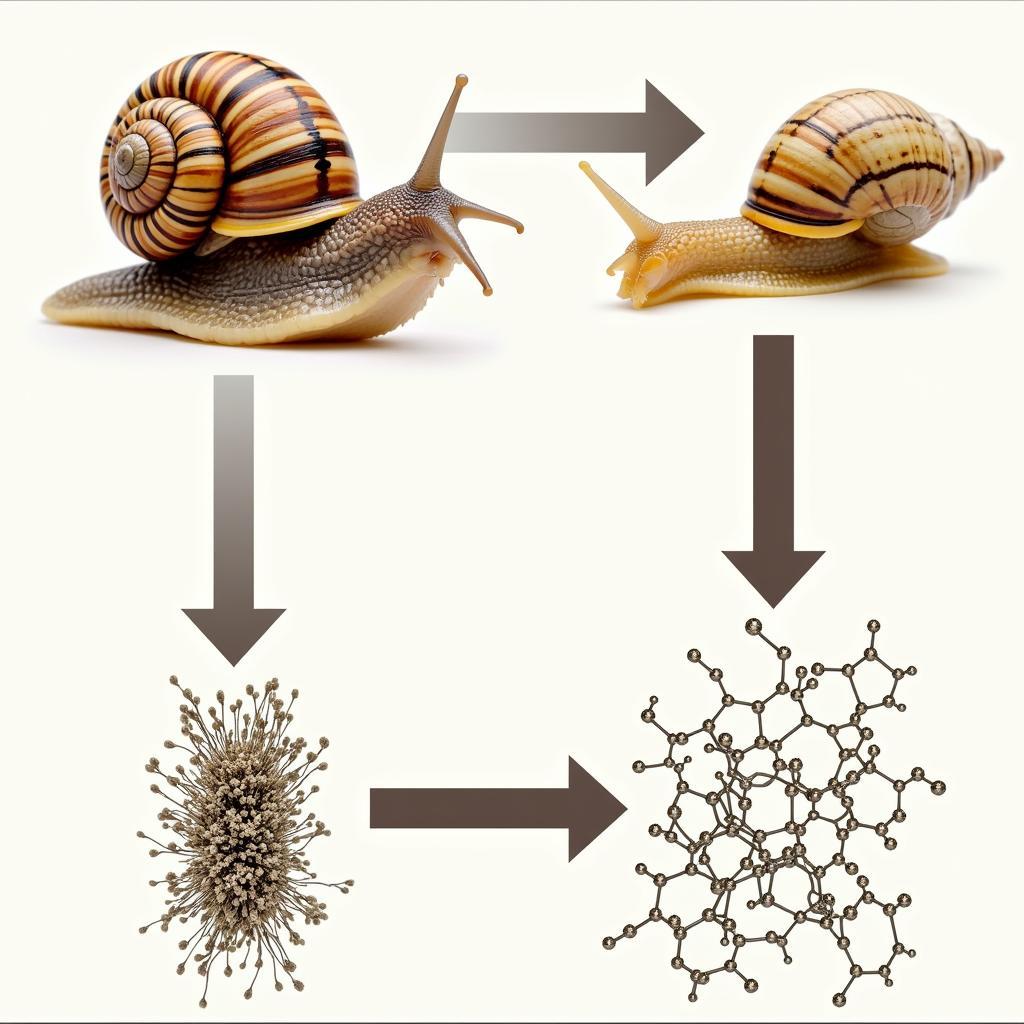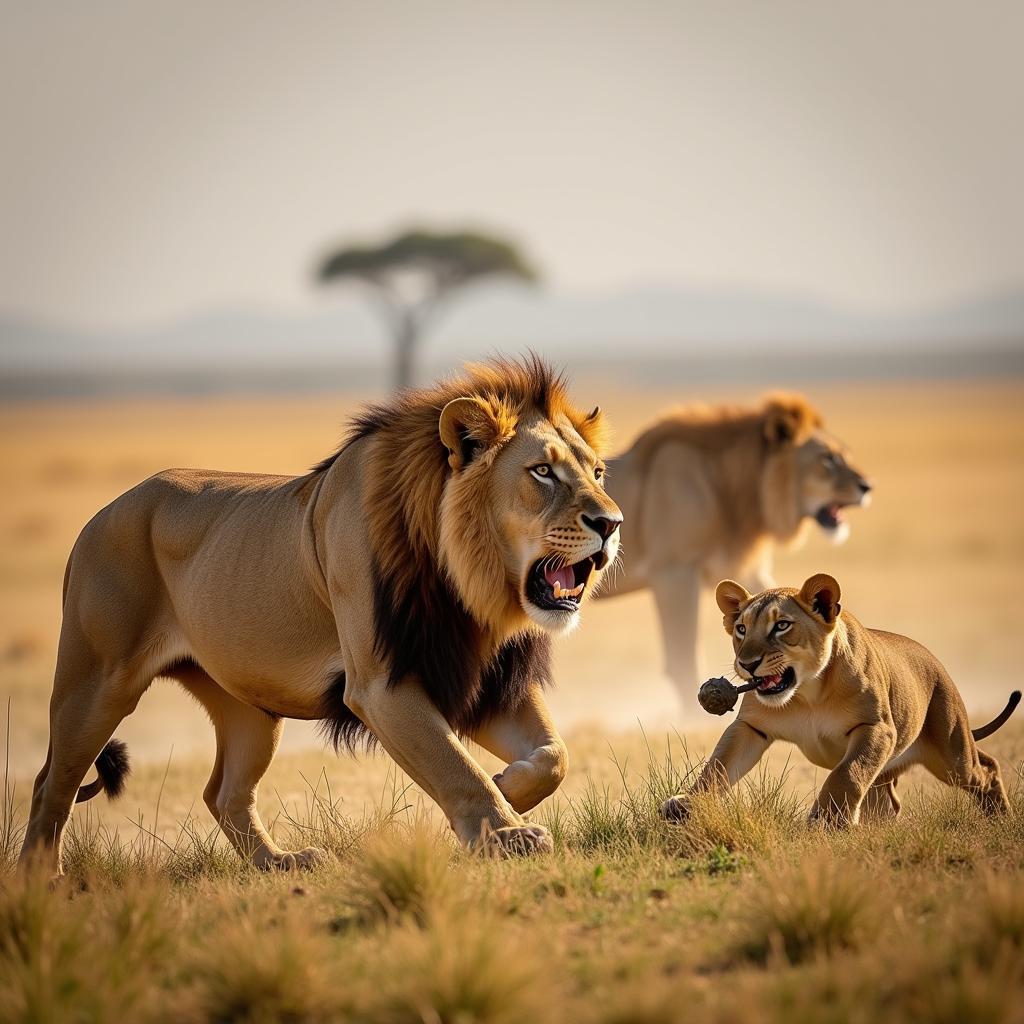African Animals: A Journey Through the Wild Wonders of a Continent
Africa, a continent teeming with life, is home to some of the most diverse and captivating animal life on Earth. From the vast savannas to the dense rainforests, African animals never fail to amaze with their beauty, power, and unique adaptations.
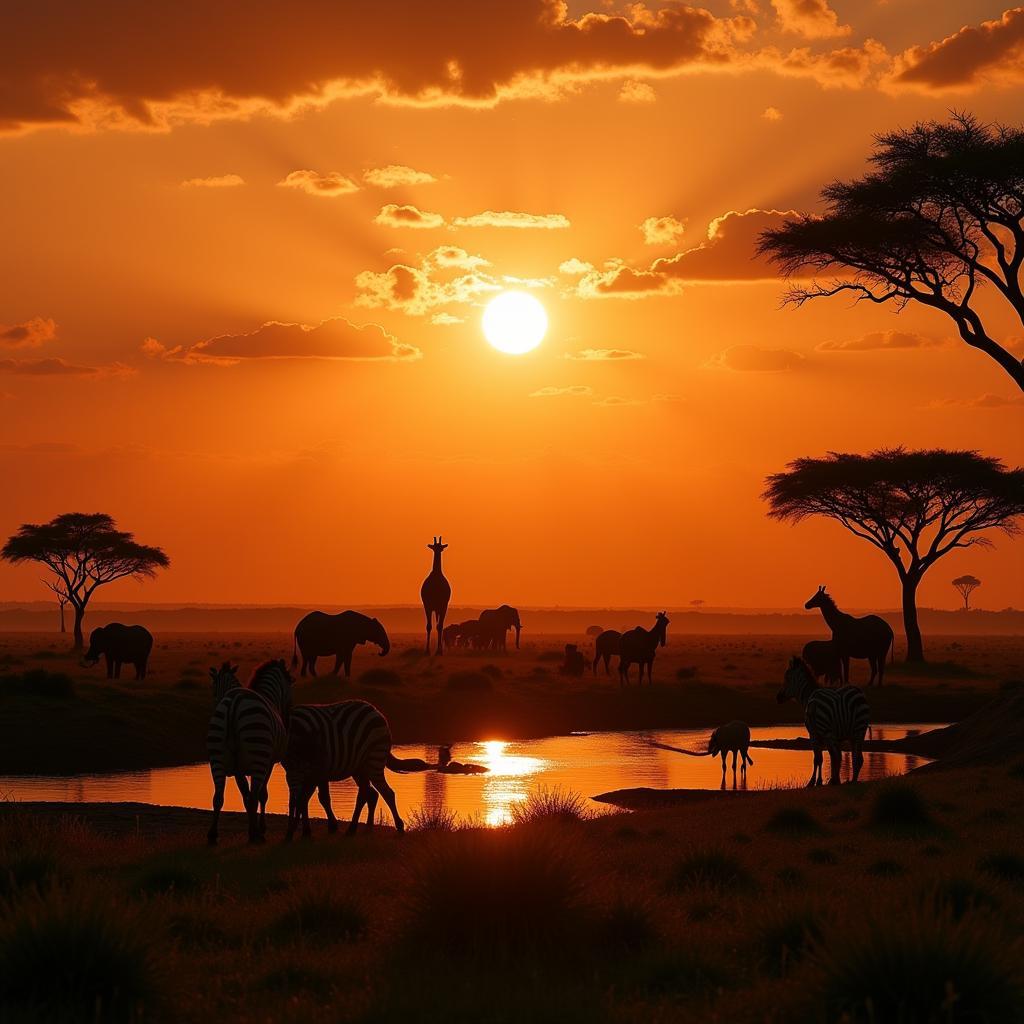 African Wildlife at Sunset
African Wildlife at Sunset
The Big Five and Beyond
When we think of African animals, the iconic “Big Five” often come to mind: the lion, elephant, leopard, rhino, and Cape buffalo. These animals have captivated explorers and adventurers for centuries, representing the raw power and untamed spirit of Africa. Lions, with their majestic manes and bone-chilling roars, reign supreme as apex predators. Elephants, the largest land animals, command respect with their sheer size and intelligence. Leopards, masters of stealth, navigate the trees with grace. Rhinos, ancient and armored, symbolize resilience. And Cape buffalos, known for their unpredictable nature, add an element of raw power to the African landscape.
However, beyond the allure of the Big Five lies a whole universe of fascinating creatures that call Africa home.
The Graceful Grazers
The African savannas are teeming with a diverse array of herbivores, each playing a crucial role in the delicate balance of the ecosystem. Zebras, with their distinctive stripes, roam in large herds, their patterns mesmerizing predators. Giraffes, the tallest mammals on Earth, use their long necks to reach leaves high in the canopy. Antelopes, in their various shapes and sizes, from the tiny dik-dik to the majestic eland, graze the grasslands, their keen senses always alert for danger.
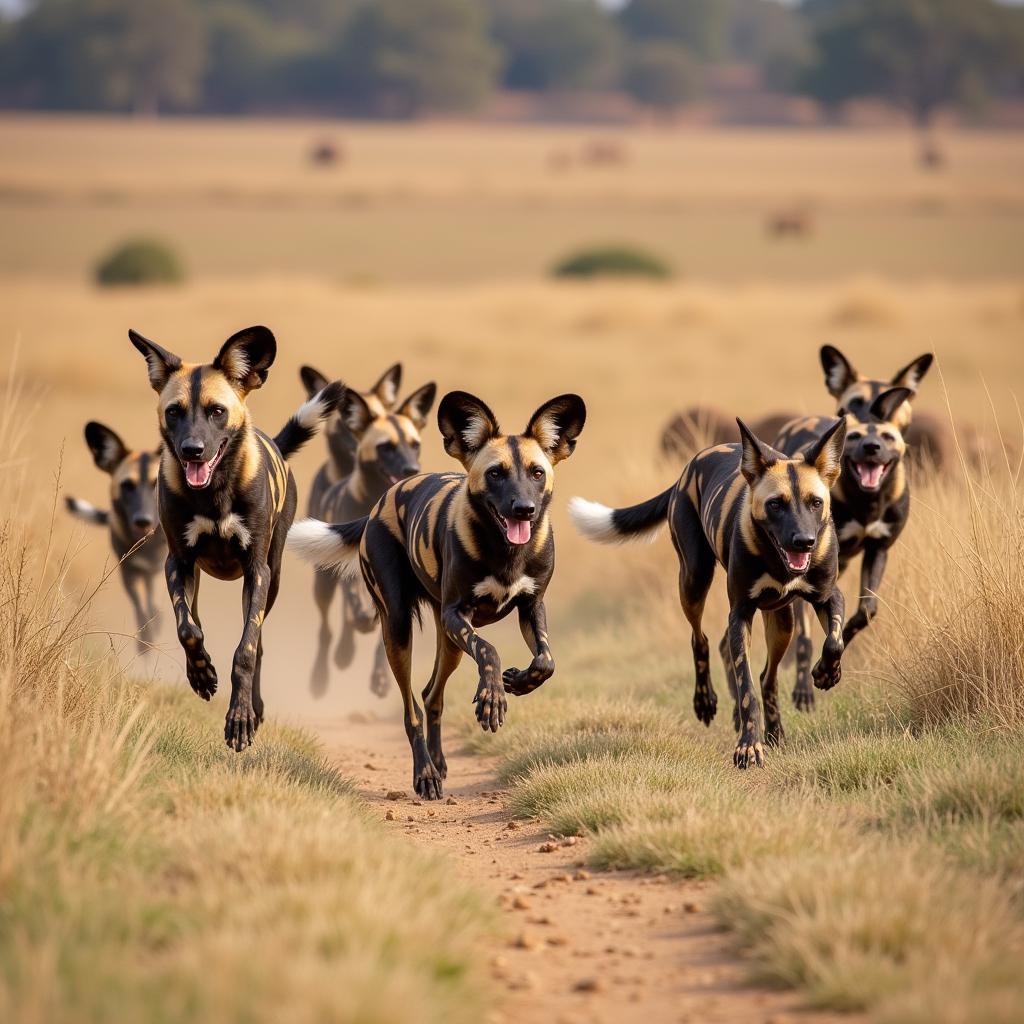 African Wild Dogs on the Hunt
African Wild Dogs on the Hunt
The Silent Hunters and Agile Predators
While the Big Five may steal the spotlight, the silent hunters and agile predators of Africa are no less impressive. Cheetahs, the fastest land animals, sprint across the plains with incredible speed. African wild dogs, highly social animals, hunt in packs, their cooperative strategies unmatched. Leopards, solitary and elusive, stalk their prey with stealth and precision. Hyenas, often misunderstood, are highly intelligent and efficient scavengers, playing a crucial role in maintaining the health of the ecosystem.
Wonders of the Sky and Water
The animal kingdom of Africa extends beyond its land-dwelling inhabitants. The skies come alive with a vibrant array of birds, from the majestic African fish eagle with its piercing cry to the colorful flocks of flamingos that paint the soda lakes pink. In the rivers and lakes, hippos wallow, while Nile crocodiles, ancient reptiles, lurk beneath the surface.
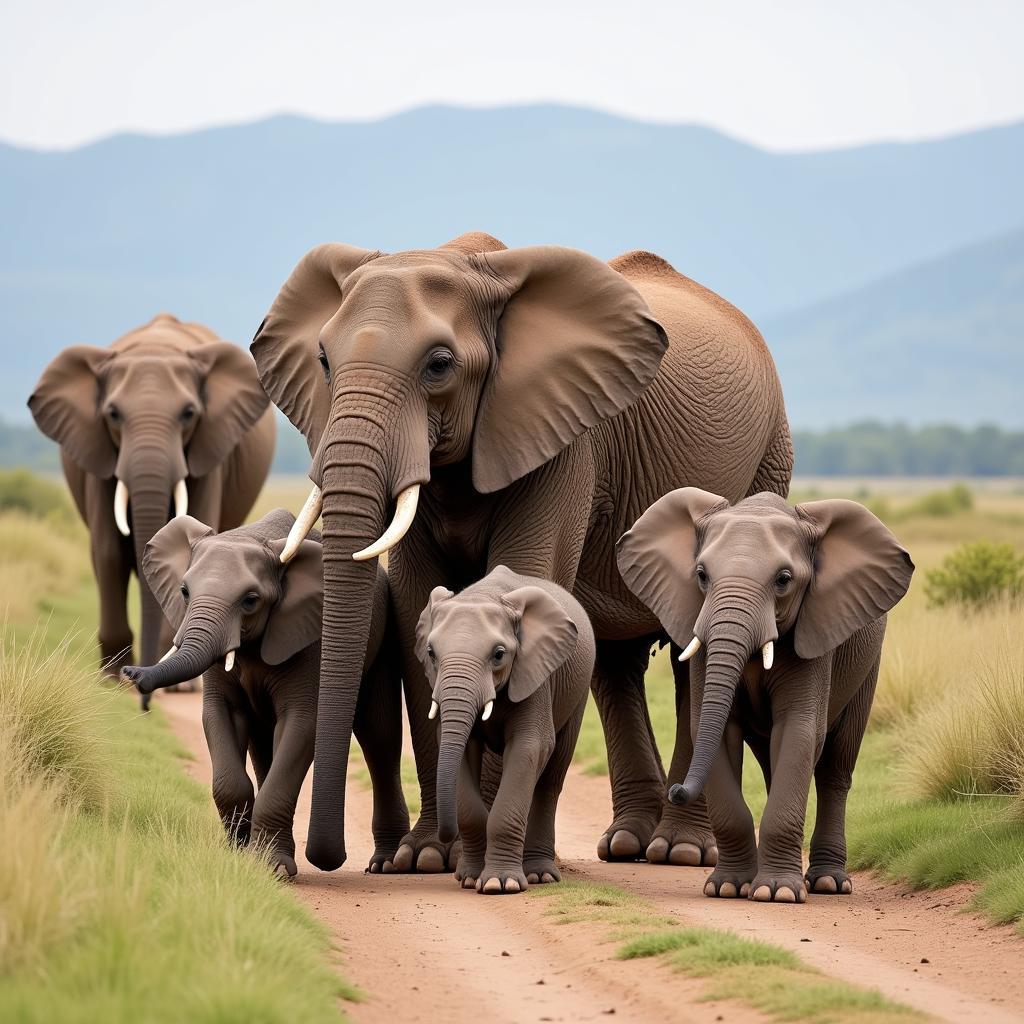 African Elephant Family
African Elephant Family
The Importance of Conservation
As we marvel at the incredible diversity of African animals, it is crucial to acknowledge the threats they face. Habitat loss, poaching, and climate change are all taking a toll on these magnificent creatures. Conservation efforts are paramount to ensure that future generations can continue to be awestruck by the wonders of African wildlife.
By supporting organizations dedicated to protecting African animals and their habitats, we can all play a role in ensuring their survival. Through responsible tourism and education, we can foster a greater appreciation for these creatures and inspire action for their conservation.
Dr. Amina Kenyatta, a renowned wildlife biologist based in Kenya, emphasizes the urgency of conservation, stating:
“Protecting Africa’s wildlife is not just about preserving biodiversity; it’s about safeguarding our planet’s natural heritage. The intricate web of life in Africa depends on the survival of these animals, and their loss would have ripple effects felt across the globe.”
The future of African animals rests in our hands. Let us strive to be responsible stewards of their future, ensuring that the wild wonders of Africa continue to inspire awe and wonder for generations to come.
